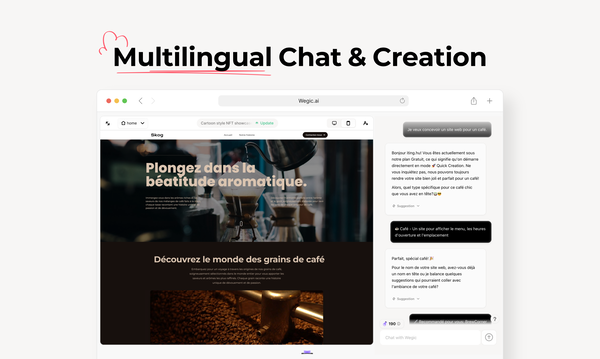Design Website Hosting Best Practices
How Design Website Hosting Works
Design Website Hosting
Creating a membership site can be a great way to generate recurring revenue and build a community around your content or offerings. To create a successful membership site, you need a reliable website builder that is specifically designed for membership sites. In this article, we will explore some of the best website builders for membership sites and discuss their features and benefits.

Design Website Hosting in 3 Steps
Design Website Hosting
1. Start with a unique concept
When developing a new recipe, it is important to start with a unique concept that sets your dish apart from others. Consider combining unexpected flavors, using new cooking techniques, or incorporating unusual ingredients to create a recipe that will pique your readers’ interest. You can draw inspiration from different cuisines, culinary trends, or seasonal ingredients to come up with a concept that is both original and appealing.
2. Experiment with different ingredients and flavors
Building recipes is all about experimentation and creativity. Don’t be afraid to try out new ingredients and flavor combinations to create exciting and delicious dishes. Consider incorporating fresh herbs, spices, citrus zest, or other aromatic ingredients to enhance the flavors of your recipe. Experimenting with different cooking techniques, such as grilling, roasting, or braising, can also add complexity and depth to your dishes.
3. Consider dietary restrictions and preferences
When building recipes for your website, it is important to consider the dietary restrictions and preferences of your audience. Make sure to provide options for different dietary needs, such as vegetarian, gluten-free, dairy-free, or vegan recipes. Including nutritional information, such as calorie count, macronutrients, and allergen information, can also make your recipes more accessible and appealing to a wider audience.
4. Include detailed instructions and tips
When writing out your recipes, be sure to provide detailed instructions that are easy to follow. Include step-by-step directions, cooking times, and temperatures, as well as helpful tips and tricks to ensure success in the kitchen. Consider including photos or videos to visually demonstrate each step of the cooking process, making it easier for your readers to replicate your recipes at home.
5. Test your recipes
Before publishing a new recipe on your website, be sure to test it multiple times to ensure that it is accurate and delicious. Invite friends or family members to sample your dishes and provide feedback on the taste, texture, and presentation. Adjust the seasoning, cooking times, or ingredient ratios as needed to perfect your recipe before sharing it with your audience.
6. Engage with your audience
Building recipes on your website is not just about creating delicious dishes – it is also about engaging with your audience and building a community around your food blog. Encourage your readers to leave comments, ask questions, and share their own experiences with your recipes. Consider hosting cooking demonstrations, virtual cooking classes, or recipe contests to interact with your audience and showcase your culinary skills.
When it comes to choosing a website builder, cost is a major factor to consider. While some platforms can cost hundreds of dollars per month, there are also cheaper options available that provide all the essential tools needed to create a professional-looking website. In this article, we will discuss some of the cheapest website builders on the market and explore their features and pricing options.
Wix is one of the most popular and affordable website builders available today. With plans starting at just $14 per month, Wix offers a user-friendly interface and a wide range of customization options. Users can choose from hundreds of templates, add features such as e-commerce functionality and social media integration, and even create a mobile-friendly version of their site. Wix also offers a free plan that includes Wix branding on the site, making it a great option for those on a tight budget.
Another affordable website builder is Weebly, which offers plans starting at just $6 per month. Weebly is known for its easy-to-use drag-and-drop editor, which allows users to quickly create a professional-looking website without any coding knowledge. The platform also offers e-commerce functionality, SEO tools, and customizable templates. Weebly’s free plan includes Weebly branding on the site, but users can upgrade to a paid plan to remove this branding and access additional features.
Squarespace is another popular website builder that offers competitive pricing starting at $12 per month. Squarespace is known for its sleek and modern templates, which are perfect for creative professionals and artists. The platform also offers e-commerce functionality, SEO tools, and analytics to track website performance. Squarespace’s plans come with a free custom domain for the first year, making it a cost-effective option for those looking to establish a professional online presence.
WordPress is a versatile website builder that offers a free plan, making it one of the most affordable options available. Users can choose from thousands of free and premium themes, add plugins for additional functionality, and customize their site to suit their needs. WordPress is ideal for bloggers, small businesses, and e-commerce websites, as it offers a wide range of features and customization options. While WordPress does require users to purchase a domain and hosting separately, the platform itself is free to use.
When choosing a website builder, it’s important to consider your budget, as well as the features and functionality you need for your site. While some platforms may offer cheaper plans, they may lack certain features that are essential for your website. Before making a decision, be sure to compare different website builders and their pricing options to find the best fit for your needs.

Quick Design Website Hosting Guide
Design Website Hosting
In conclusion, no code web builders have transformed the web development industry by providing a user-friendly, cost-effective, and efficient solution for building customized websites. This innovative technology has empowered individuals and businesses of all sizes to create professional-looking websites without the need for coding skills or technical expertise. No code web builders offer a wide range of benefits, including time and cost savings, flexibility and customization, user-friendliness, and ease of maintenance. As the demand for no code web builders continues to rise, it is clear that this technology will play a key role in shaping the future of web development.


